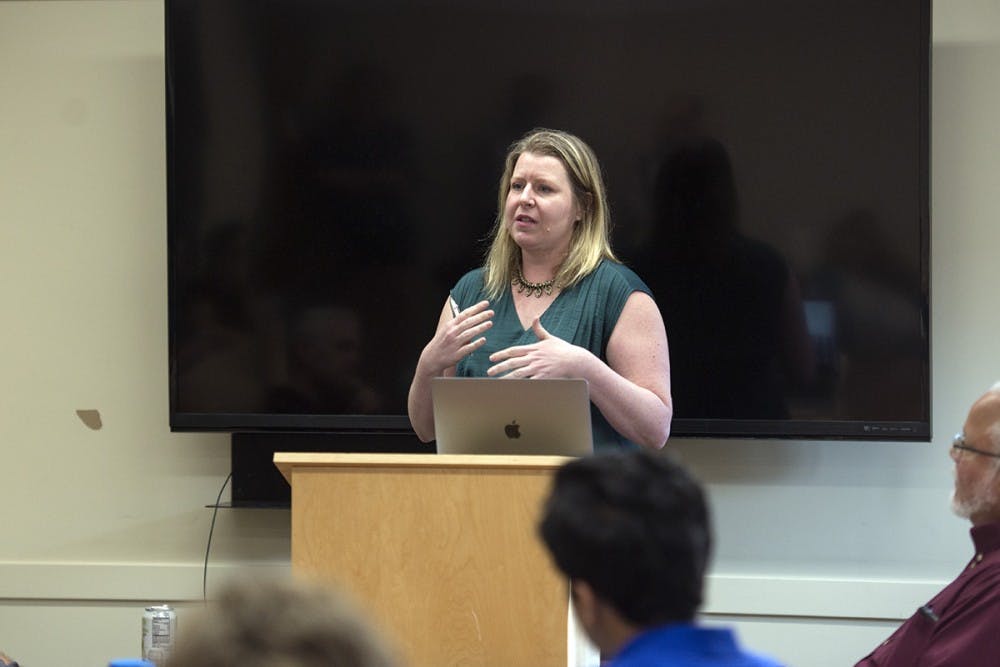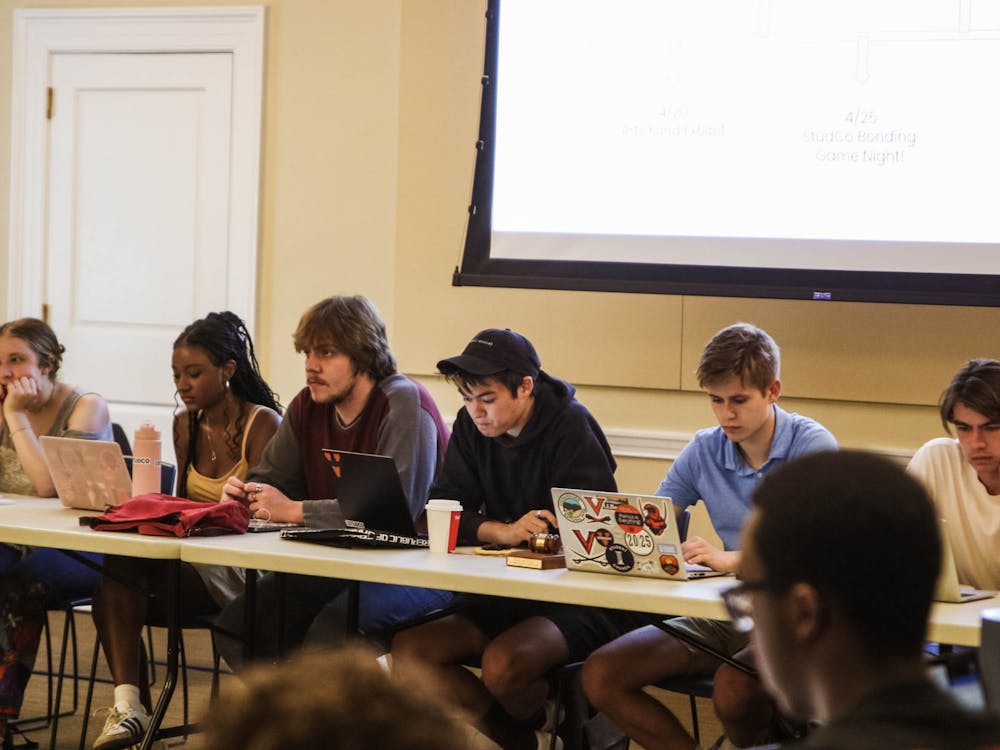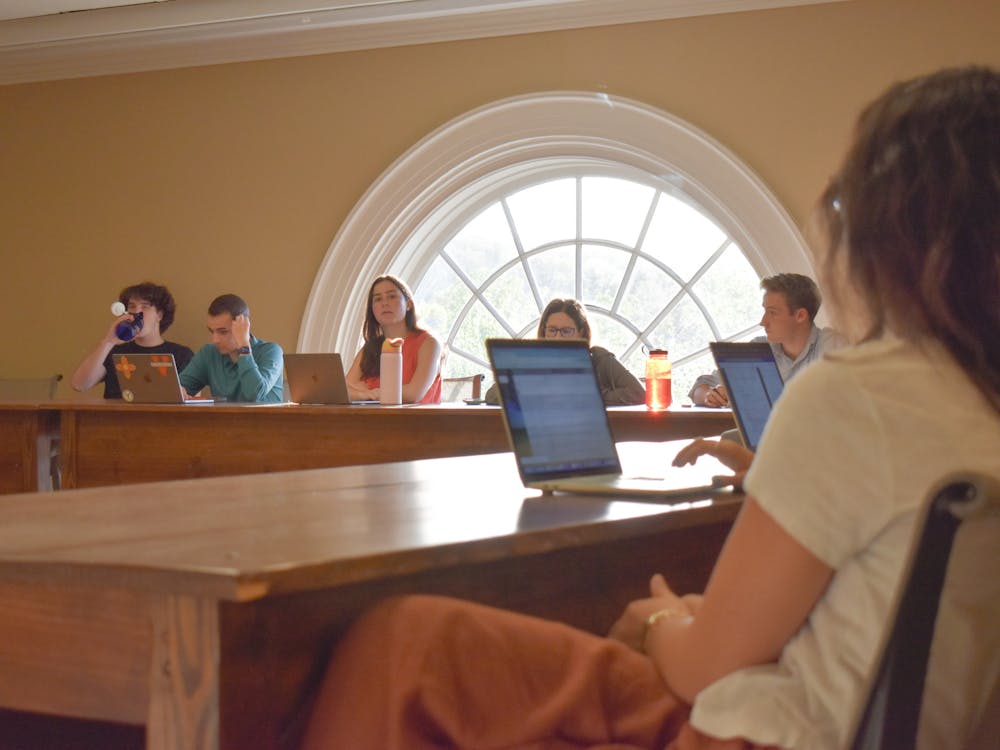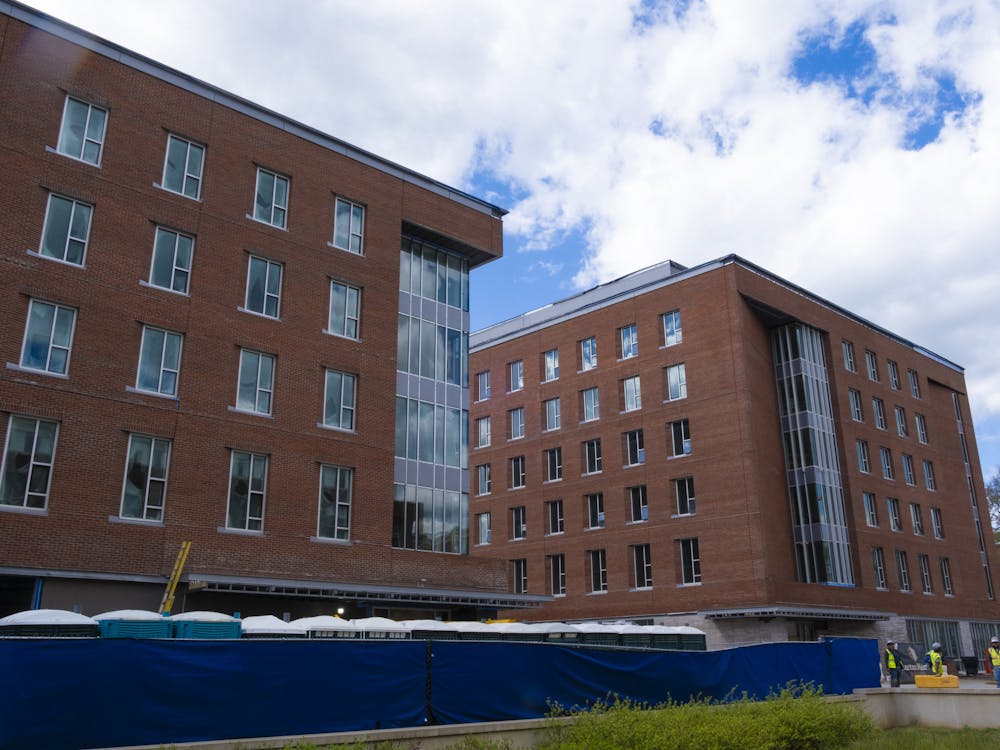Nicole Hemmer, an assistant professor of presidential studies at the Miller Center, talked about her new podcast, “A12,” to dozens of students, faculty and community members at an event in Nau Hall Monday evening.
Hemmer’s podcast focuses on the white supremacist rallies of Aug. 11 and 12, 2017, where hundreds of white supremacist protesters clashed with against anti-racist activists at a torch-lit rally on the Lawn and the Unite the Right rally downtown. The Unite the Right rally resulted in the deaths of three individuals and injuries of dozens more.
Hemmer is a leading expert in the history of white nationalism and conservatism in America. Her 2016 book, “Messengers of the Right,” looks at the impact of conservative media on American politics.
In her podcast, Hemmer explores the history leading up to the Unite the Right rally. In an interview with The Cavalier Daily, Hemmer said the podcast arose in order to educate, synthesize and inform the community about the events and the context in which they occurred.
“There was a lot that happened over what people call ‘The Summer of Hate’ that people just don’t remember or that they didn’t know,” Hemmer said. “So, in many ways [the podcast] really reconstructs what that summer looked like — so, in that sense, it’s a really important part of our history.”
At the event, Hemmer said she decided to present her story as a podcast because she believed the best way to accurately convey the events of Aug. 11 and 12 was through sound. Hemmer interspersed the discussion with audio clips of her podcast to supplement the conversation and provide more context for those in attendance.
Some of the sounds she said made an impact on her throughout her experience included the chants of the protesters and the sound of a metal club hitting skin.
“There was an intimacy and urgency to this story that led me to decide that it should be done as a piece of audio-storytelling,” Hemmer said. “There’s nothing that really matches the intimacy of a human voice in your ear — that kind of personal connection. And for me, sound played a huge role in the events of August 11 and 12.”
Hemmer’s podcast, containing six episodes of interviews, focuses on the historic context of Aug. 11 and 12 as well as the communal experiences of the event. In an effort to reconstruct the event, Hemmer interviews professors, students and Charlottesville community leaders.
History Prof. John Edwin Mason, one of the podcast’s featured guests, emphasized the podcast’s role in synthesizing the events.
“The events of that summer were awfully scattered — they looked different depending on who's looking and depending on where you’re standing — and she’s been able to weave this incredibly complicated story into a really compelling narrative,” Mason said in an interview with The Cavalier Daily.
Hemmer said the historical component of the podcast allows the audience to fully understand the complexity of Charlottesville’s history leading up to Aug. 12. Part of this, Hemmer said, requires the audience to see Charlottesville’s history through the eyes of minority residents.
“We have this inherited narrative about what happened in Charlottesville’s past,” Hemmer said. “I wanted … to flip it and think about what it would look like if we told the history of Charlottesville through the eyes of black residents and Jewish residents instead of having the story of white residents front and center.”
At the event, Hemmer also spoke about the importance of activism in all forms throughout the event and spoke about the crucial role activists played before, during and after the white nationalist rally.
“What I was most impressed by was how people really made room for all forms of activism over last summer — that people who wanted to resist neo-Nazis and white nationalists could find a way to do it that would feel authentic to them,” Hemmer said. “Some people sought direct confrontation, others provided aid to protesters, others set up counter events and more distant protests.”
In the interview, Hemmer emphasized the importance of acknowledging the trauma Charlottesville and its people experienced.
“One of the throughlines for the podcast is the idea of trauma and the trauma of activism, the trauma of survivors, the trauma that happened in this community as a whole,” said Hemmer. “I think that there’s something really valuable about foregrounding that and reminding people that Charlottesville [and] U.Va. are still communities that are in the process of healing— and healing takes time, and it’s okay that it takes time.”
At the close of the event, Hemmer focused on the aspect of hope, noting that she would ask all of her interviewees if they had hope for Charlottesville and the country.
“Every single person said yes,” Hemmer said. “They said yes, I think, because, while the world may have only seen death and disorder in Charlottesville on Aug 11th and 12th, they saw something more — resistance, resilience — and if that’s the story that Charlottesville tells … in the aftermath of last summer, then that hope seems very well-founded indeed.”
The event, hosted by the History Department, is one of a series related to the events of Aug. 11 and 12, 2017 within the University community.





